Family Constellations - Somewhere Between Group Therapy, Impro Theater, and Séance
It is not easy to address psychological traumas, especially if they are buried deep in the subconscious. Oftentimes they tend to have very complex causes, involving numerous people, and stretch over years, or even multiple generations. Innovative therapists have come up with various techniques to address these issues, and bring them to light where they can be resolved. Some of these methods may not precisely fall into what's considered "orthodox" or "scientific", but if they help resolve the issues, does it really matter?
Solving Mental Problems in Tribal Societies
One of things that struck me in my first experience of family constellations, was how it reminded me that in various pre-industrial cultures psychological issues were considered not only a matter of the afflicted individual, but the entire family, clan, or village. This meant, that the treatment involved parents, siblings, friends, and neighbors, and under the guidance of the shaman everyone participated in making the one carrying the problem feel well again. When looking at the Wikipedia article on family constellations I was (not) surprised to see the Zulu mysticism mentioned as part of its origins.
From My Own Personal View
I was invited to participate in a family constellation by my sister, who is friends with four therapists who use this method regularly, and she has helped out a couple of times before. Though it was not strictly planned, there were 13 of us in that particular session, where we addressed the issues of three "seekers" (meaning patient or client), each in a separate constellation. One of the therapists was facilitating the constellation, while the rest of us were free to be "representatives" and take up roles to act out intuitively, without having any idea of what or whom to act.
Rolling With Pure Gut Feeling
Normally, when you have to act out a role, you'd like to have as much information about the character and the surrounding situation as possible. In this case, however, we don't know anything whatsoever. The therapist has assigned each character a number, which we are welcome to choose: "Who wants the number five? How about the two?" So you stick a piece of tape with a number on your shirt, and have to act. Act how? Act according to your intuitive feeling! After all, there is nothing else to go with. So you walk around the room together with all other representatives wearing numbers, and act on your impulses: "I like you, let me stand close to you!" one may say. Or also, "Please don't look at me, you make me feel scared."
Acting and Reacting Under Skillful Guidance
First the therapist watches our interactions carefully, then directs us with well placed questions. These could be things like "Which one of you is bigger / smaller?" or "Why do you think that person dislikes you so much?" Of course we still have no idea who we are supposed to be. Male of female? Old or young? Dead or alive? However the questions, as well as the intuitive feelings expressed by the others, do provide a certain reassurance on how to act. So pretty soon certain things become established and are put into words: "I think you hurt me at some point." Or maybe "You're the only one who makes me feel safe."
Real People or Abstract Concepts
In a constellation representatives can act out various members of the family or other people having to do with the seeker's issue. However, it is also common that they are to represent a more abstract entity, such as life, love, or maybe a country, an institution, or, as it was the case in our last constellation, the various aspects of one person: their analytical thinking, their education, their inner child, their roots and origins, and their heart (who in that case was the one feeling most unwell, just as it was in the issue of the seeker).
Gradual Revelation
Meanwhile the seeker sits in a deep armchair, taking it all in. Though he doesn't know either who each number is supposed to be, at least he is aware of possible participants. It is his issue after all that is being addressed. As the session progresses, the therapist reveals certain things when she considers them appropriate. "You know, you are no longer with us." or "Number seven is your father." At this point the emotions have become so strong that tearful outbursts or violent screams are perfectly fitting. They don't even need to be acted out, as the feelings that provoke them are certainly felt for real, even by those ones who are not participating, especially the seeker. At one point the therapist may invite the seeker to take his own role, while the representative previously acting him supports him with a hand on his shoulder.
The Powerful Mystic Aspect
Okay, while closed questions, especially the types of "Don't you think...?" or "Wouldn't it be best to...?" are obvious techniques to guide us in a certain direction, I can assure you that this is not the only side of the story. In both roles I took up as representative, I acted on an initial feeling that turned out to be spot on. In the first one it was a dizziness, where I had to lay down on the floor, feeling completely overwhelmed by everything. It turns out that the person I was representing had lost his twin brother as well as his grandmother, he had been really close to, while his mother was very distant. In fact, I was told later, that just the day before he had also fainted. Oh my, I had no idea!
Tying Up Unresolved Issues
The goal of a family constellation is of course to find resolution for the seeker's problems, and so the therapist seeks out to have representatives forgive old grudges, release loved ones who have passed, and express pain that current problems still cause. And sure, on one side we have to keep in mind, it is still theater in a way. Just because someone who is representing you broke out in tears, or pounded a pillow into a chair, doesn't mean that your own problem suddenly disappeared. However, it does provide a powerful outlet, one that is not only visualized or imagined, but one that you as the seeker got to experience first hand. So it does help a lot with the future work that is needed, for example in becoming a better father, or letting loved ones rest in peace.
Going Back for More
I became so fond of my first impression of this technique, that I signed up immediately for another family constellation next week. More importantly, I will keep it in mind as a possible tool in case some deeply rooted problem needs to be addressed, either within me or someone I know. If this brief introduction got you interested, I urge you to look more into it, and maybe find a therapist who does family constellations near you. Even if it is not your own issue that is worked on, it is definitely worthwhile to experience it as an observer or a representative.
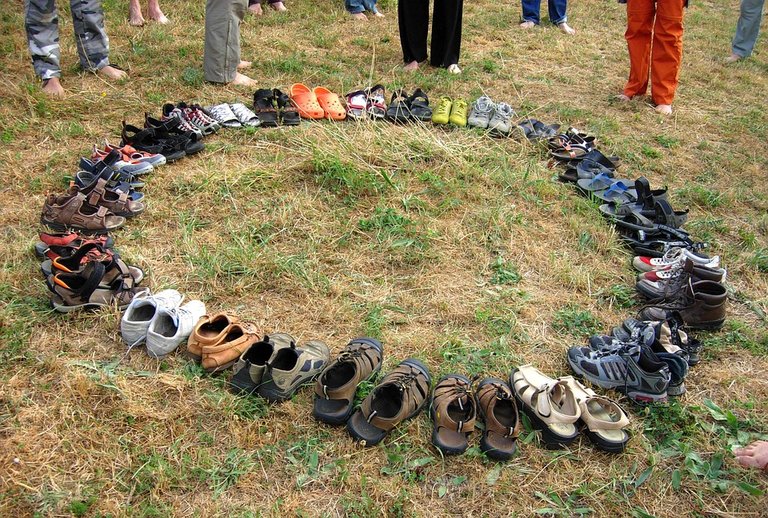

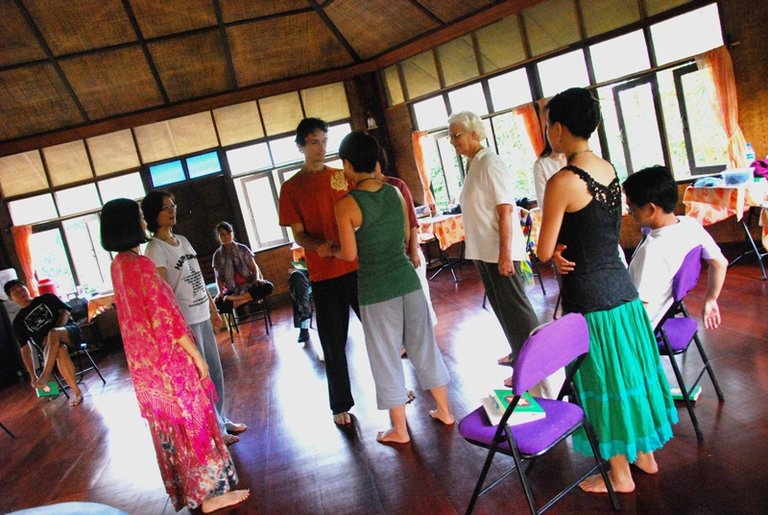
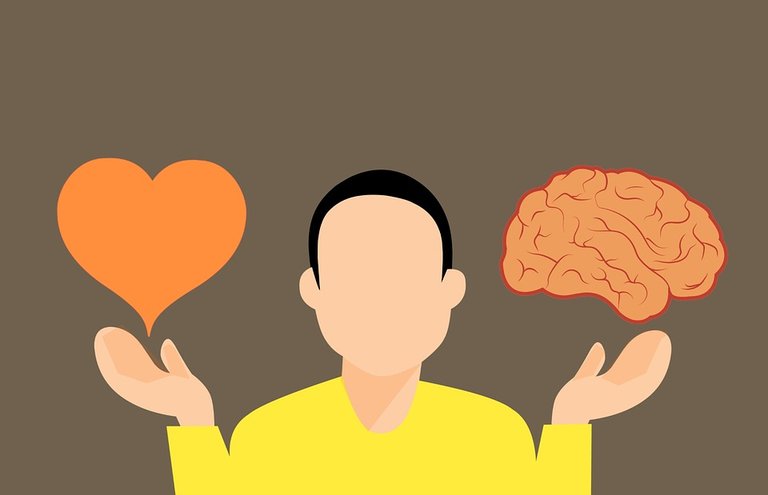
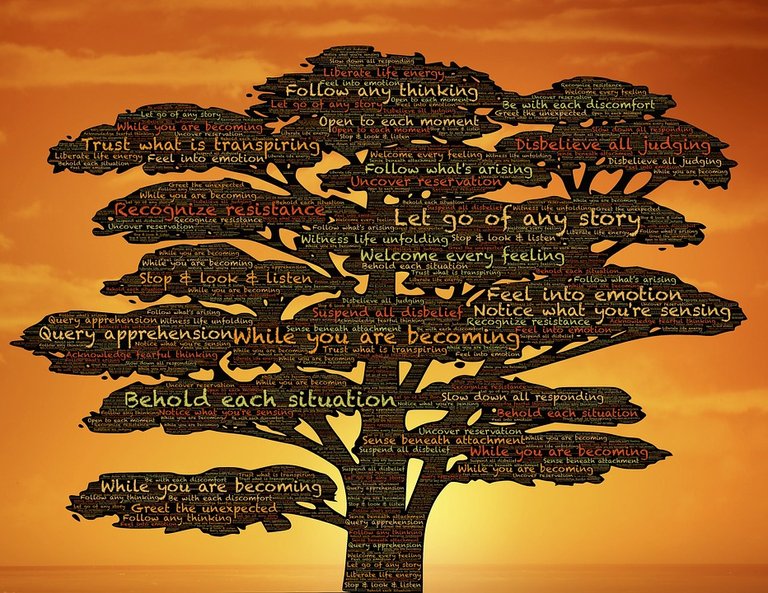
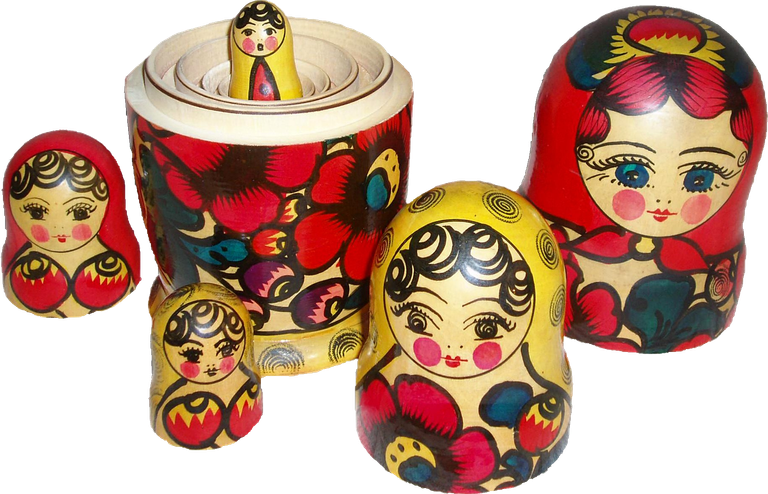



This is all really interesting. I have heard of family constelation therapy before, but your words are making me want to give it a try!!
Well thank you! Maybe it's my words that prove to have a therapeutic effect! ;-) Though from what I heard, there are many different variations of family constellations.
I've particpated a couple of times in other folks' family constellations, and was really astounded at how clearly I felt myself embodying the child or woman that I was representing to the protagonist... Such potent cosmic dance is available to us at all times! Nice sharing, dear @stortebeker !
So far I have participated in five constellations, and got to represent various (great) grandparents of the seeker, one time the seeker himself, and once the conceptual entity of love and another time the seeker's success / achievement. They each felt completely unique and interesting in their own way.